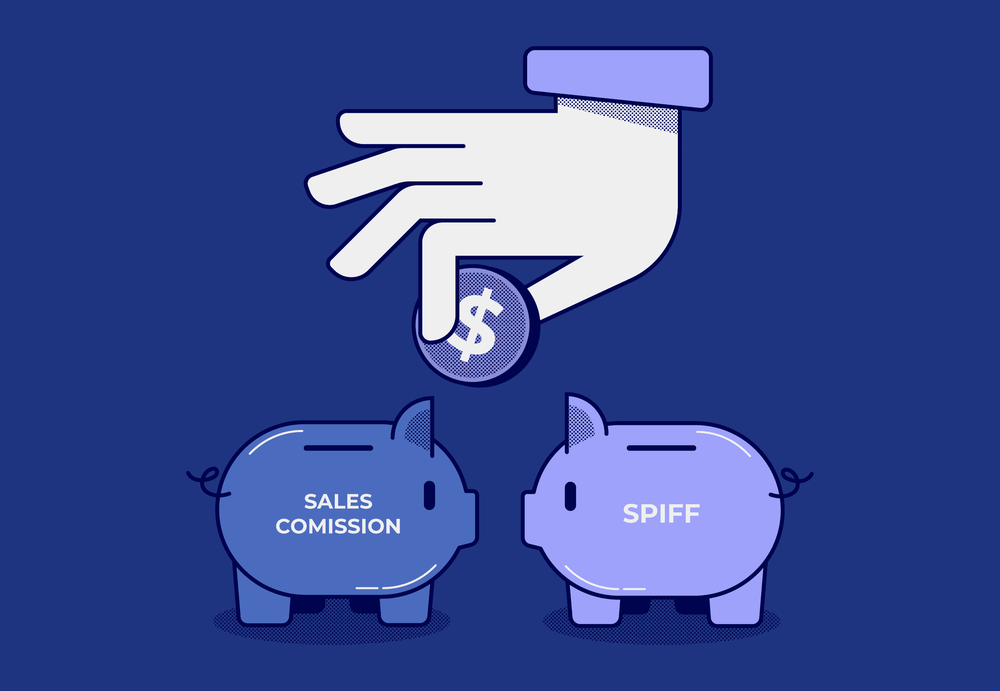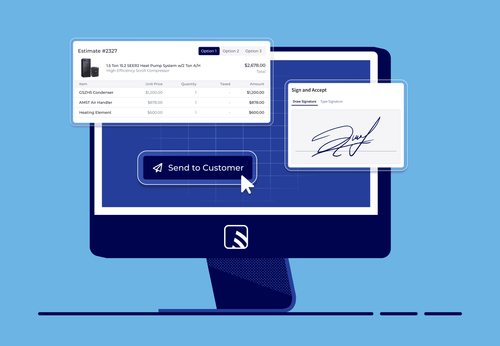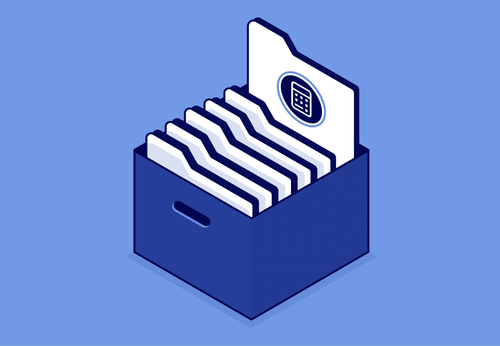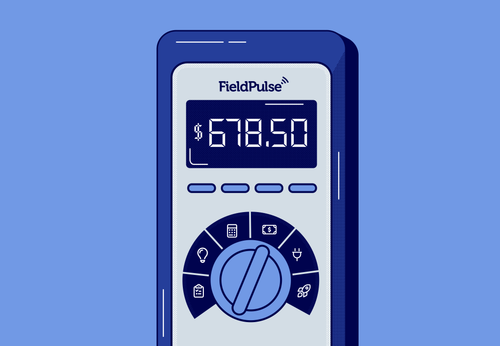Sales Commission and Spiffs: Building Effective Field Team Incentives
Explore essential insights and effective strategies for maximizing sales commission and spiffs. Learn how to motivate your team and boost performance.
Jun 18, 2025

In field service businesses, aligning performance with rewards can make all the difference. Whether you're managing HVAC techs, plumbers, electricians, or other tradespeople, incentivizing your team through sales commission and a structured spiff program can dramatically boost sales, improve morale, and increase overall job satisfaction.
With FieldPulse , you can calculate and manage these programs easily. But before diving into how FieldPulse makes it seamless, let’s break down what these terms mean and why they’re essential to your sales performance incentive plan. Alongside commissions and spiffs, there are also other incentives businesses may use, such as team bonuses or recognition programs. Each type of reward plays a role in improving technician engagement and performance.
Sales Commission - What It Is, Why It Works as a Team Incentive
A sales commission is a sales performance incentive that rewards your sales reps or technicians for closing deals or upselling additional services. It's typically a percentage of the total sale and is one of the most common incentive programs used by sales managers.
Sales commissions work because they directly tie a salesperson's income to sales goals, motivating sales teams to stay focused, competitive, and driven. When salespeople feel they have a clear path to earning more, they naturally perform better.
Why Sales Commission Works for Field Service
- Encourages reps to close deals quickly and efficiently
- Promotes upselling of particular products or services
- Aligns technician actions with specific objectives
- Helps protect profits by making it a variable cost
- Drives higher sales performance across your company
In FieldPulse, managing sales commissions is simple. You can choose to calculate commissions as a flat amount, a percentage of gross sales, or a percentage of gross margin, and assign custom rates to individual team members. This ensures every sales rep knows exactly what they’re earning, what they’re working toward, and how they can achieve more.
Spiff - What Is It? What Does It Mean?
A spiff, short for Sales Performance Incentive Fund, is a type of short-term incentive. It provides an immediate bonus to sales reps or technicians for meeting specific objectives, often tied to a particular product or service.
Spiffs can be cash spiffs or non-cash spiffs and are used to motivate salespeople to hit sales targets fast. A well-designed spiff keeps your sales team motivated, creates healthy competition, and delivers maximum impact.
Spiff in Sales: What It Looks Like
- $100 bonus for selling a new smart thermostat
- $50 for each service contract signed this week
- Gift cards or event tickets for top sales reps
These programs are easy to launch and often have clear, quick outcomes. The ultimate goal is to increase sales and drive targeted behavior with immediate motivation.
A properly executed spiff program can encourage selling in areas that align with your broader business strategy. It gives your sales team a boost while helping you move a specific product or meet urgent sales goals. Companies that regularly offer spiffs often see better adoption of new services and promotions.
When choosing spiffs, it's important to match the reward with the effort required. Offering too little can result in low participation, while overly generous bonuses may blow your sales budget. Evaluating your spiff in sales outcomes regularly ensures alignment with business objectives.
For example, an HVAC sales manager may create a spiff program during busy season that increases commissions for selling maintenance agreements. This would ultimately help boost work during the off season and increase customer retention, benefitting the company and giving salespeople a chance to earn some extra cash.
What’s the Difference Between Spiff and Sales Commission?
Understanding how spiffs and sales commissions differ is key to building the right incentive strategy. Here's how they compare:
Sales Commission Spiff Type Ongoing incentive program Typically a short-term incentive Payout Based on a percentage of the sale Typically involve a fixed immediate bonus. Focus Reward overall sales performance Focus on specific sales targets Frequency Paid regularly One-time or seasonal Ideal Use Reward long-term top performers Promote new or strategic specific products
Both spiff programs and sales commissions play critical roles in your incentive plan. Commissions support long-term performance and accountability, while sales spiffs deliver bursts of focused energy toward specific objectives.
By using both, sales managers can maintain a high baseline of sales performance while also adapting to market trends and seasonal opportunities. Together, these tools help drive sales while keeping your sales team agile and goal-oriented.
How to Calculate Sales Commission
There are multiple ways to calculate sales commissions, each suited to different business models and goals. Here are the most common:
1. Flat Percentage Commission
- Formula: Sale amount × commission rate
- Example: $1,000 job × 10% = $100 commission
- Great for keeping your sales budget predictable and rewarding every sales rep fairly.
2. Tiered Commission Structure
As salespeople achieve more, their commission rate increases.
- 0–10 sales: 5%
- 11–20 sales: 7%
- 21+ sales: 10%
This model motivates reps to chase higher sales targets and close as many deals as possible.
3. Fixed Rate Per Sale
- Reward reps with a fixed dollar amount.
- Example: $25 for every maintenance plan sold.
- Useful when promoting a particular product or a limited-time spiff program.
4. Hybrid Model
- Combine additional commission with a spiff.
- Example: 5% commission plus $75 sales spiff for add-on equipment.
- This structure balances long-term and short-term incentives for maximum impact.
Be sure to align your chosen model with your sales budget and overall business goals.
FAQ: Is Sales Commission a Variable Cost?
Yes. A sales commission is a variable cost. That means you only pay when a sale is made.
This structure helps with cost control and aligns expenses with revenue. Since you're only paying out when sales are generated, it’s a financially smart way to reward high sales performance.
It also ensures your sales budget remains flexible and adaptable to actual selling activity, rather than being tied to fixed overhead. When deciding on commission amounts, be sure to look into profit margins and ensure you are still pricing your services to account for the additional commission.
Many companies pair commissions with other incentives like bonuses or recognition to maximize team output and boost morale.
How to Manage Sales Commissions for Field Service Teams: FieldPulse
Manually tracking incentives across your sales team can be overwhelming. That’s where FieldPulse comes in, helping not only with incentive tracking but also with automated customer communication.
FieldPulse's Sales Incentive Tools
FieldPulse lets you:
- Create customizable spiff programs
- Assign unique sales commission structures to each sales rep
- Track sales performance in real-time
- Monitor sales budget vs. payouts
- Set clear objectives and align with team feedback
- Configure program rules for fairness and consistency
- Track incentive fund utilization and remaining balances
Effective Spiff Program Design
To run an effective spiff program, focus on clarity, timeliness, and relevance. Spiffs should:
- Be easy to understand
- Provide immediate motivation
- Target a specific product or service
- Be tied to measurable, clear objectives
- Fit within your incentive fund and sales budget
This ensures sales professionals know exactly how to succeed and what success will earn them.
Create Healthy Competition and Reward Top Performance
Use leaderboards, public recognition, and non-cash spiffs to build healthy competition. Recognizing most deals closed or the fastest response times can keep your sales team engaged and striving.
Why FieldPulse Makes Sense
With FieldPulse , you:
- Eliminate manual spreadsheets and confusion
- Align spiff programs with your business goals
- Ensure clear communication across teams
- Foster buy-in from sales reps and field techs
- Avoid creating a toxic work environment through missed or unfair payouts
- Track commissions and sales team performance with dashboards and reporting
You can also run effective spiff programs seasonally or monthly, adapting to market trends, new products, or company priorities.
Whether you need to promote sales, launch a new specific product, or achieve end-of-quarter sales goals, FieldPulse gives you full control of your incentive fund and sales performance.
Get a demo of FieldPulse today and see how easy it is to manage your incentive plan, boost team morale, and drive real revenue growth.



